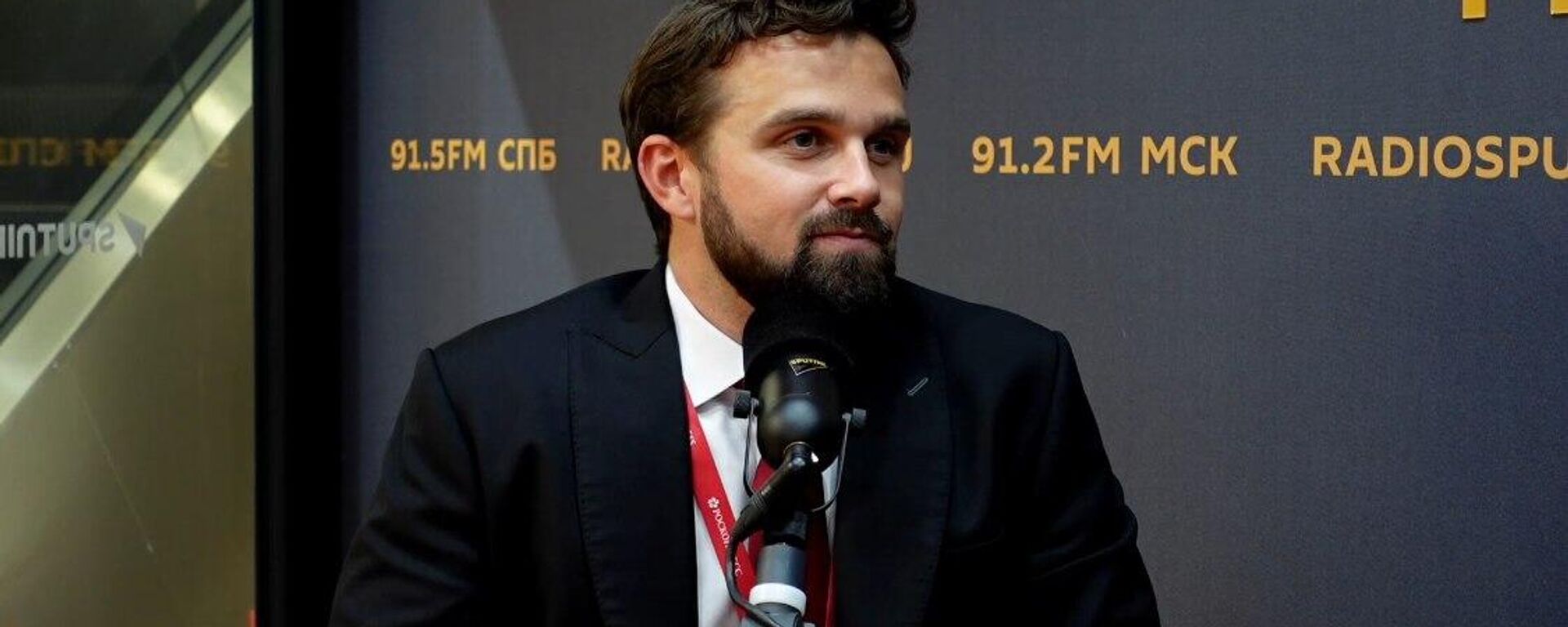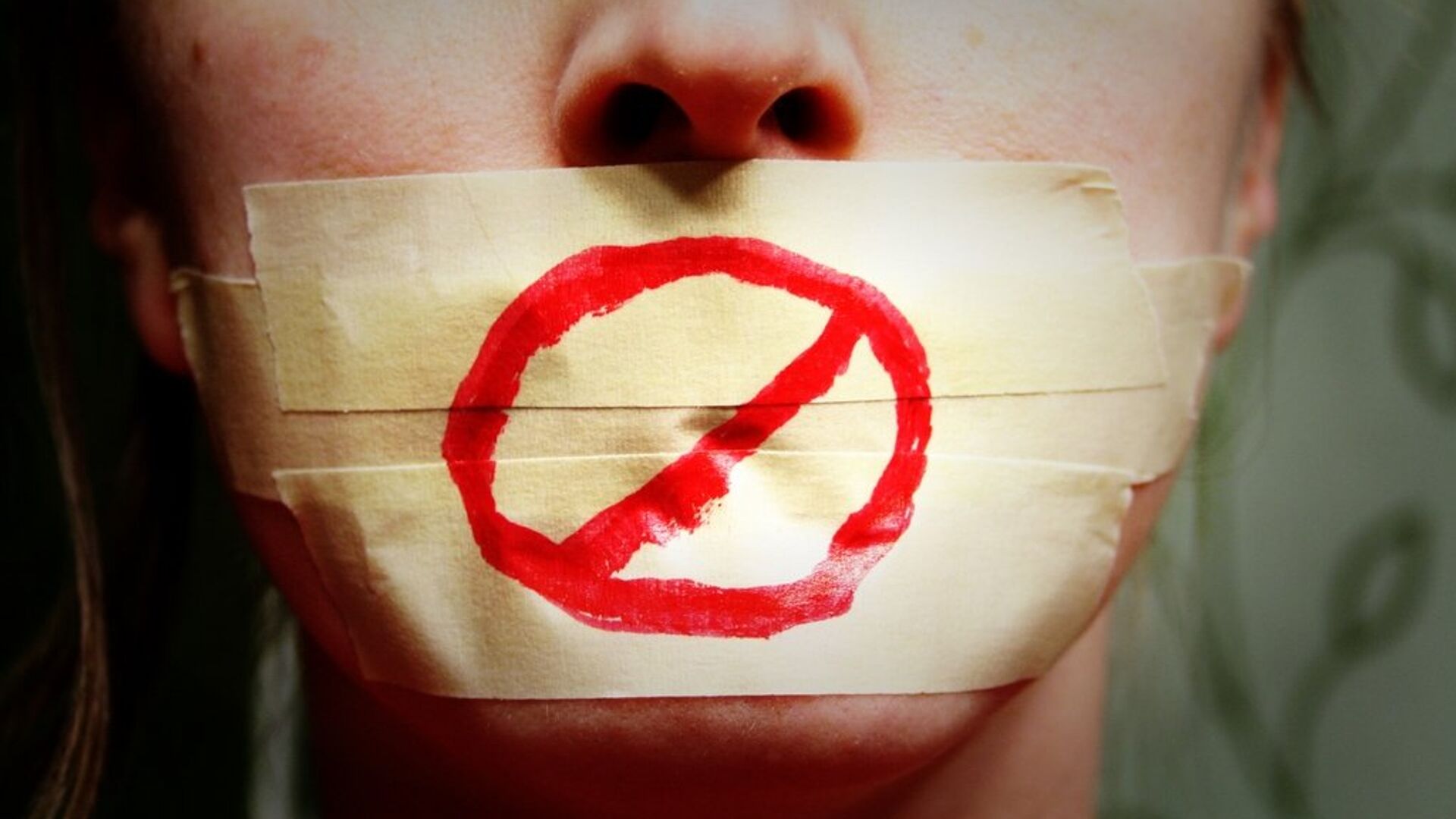https://sputnikglobe.com/20240908/corporate-complicity-in-censorship-destroys-due-process-1120072210.html
Corporate Complicity in Censorship Destroys Due Process
Corporate Complicity in Censorship Destroys Due Process
Sputnik International
The censorship of users on major social media platforms is as effective as government censorship, but leaves those affected with little recourse.
2024-09-08T00:29+0000
2024-09-08T00:29+0000
2024-09-08T00:29+0000
analysis
chris hedges
russia
china
us justice department
sputnik
vimeo
youtube
https://cdn1.img.sputnikglobe.com/img/104783/49/1047834955_0:37:1024:613_1920x0_80_0_0_904bbd14d78a09565e0038e1c16442f8.jpg
The ability of major social media companies to destroy someone’s life work and silence their speech without trial is antithetical to the Western justice system, which is marketed as the fairest in the world.Thanks to the recent widespread acceptance of censorship in the West, multinational and multi-billion dollar companies are now the sole arbiters of truth and the Overton window, determining guilt and doling out punishments unilaterally and without oversight. While their heavy hands have resulted in a few alternatives growing in popularity, the vast majority of speech in the West still hinges on the whims of a few companies and their content policy which is as opaque as it is fluid.While most of the censorship online has come at the behest of various governments, those being censored are ultimately cut out of online discourse without trial and very little recourse. In the case of Tenet Media, they have not been charged with a crime and those indicted are unlikely to face trial because they will not be extradited to the United States by Russia. That means Tenet and other affected accounts are now in an indefinite state of limbo.“For as long as [the case] exists and it’s not gonna be contested because the defendants are in Russia and beyond extradition, then nobody has to bother proving any of it. And all you have is the process in the media, which has been the media always prints the press release and in this case, the allegation,” explained Serbian-American journalist Nebojsa Malic on Sputnik’s Backstory. “It’s almost as if this kind of stuff is put out there specifically to influence public opinion and… create and manage these perceptions because the people named or actually charged are not in a position to defend themselves.”The result is a world in which the government can use technology companies to censor its citizens without trial or recourse and tech companies have the power to act as prosecutors, judges and juries of individuals, with or without government instruction.In April 2022, YouTube deleted the entire six-year archive of “On Contact” an Emmy-nominated television show hosted by Pulitzer Prize-winning journalist Chris Hedges was removed from YouTube.“This kind of stuff is disgraceful, but it’s also a violation of due process,” explained Malic. “How do you delete somebody’s life work without recourse? How is this possible? If China did this to somebody, you would have every single NGO humanitarian organization, professional grifters who are fundraising millions from the gullible public all over the world in the name of human rights and democracy, denouncing this as tyrannical. But it happens in the US and it’s fine.The common defense of censorship advocates is that it is a private company –not the government– who is pressing the censorship button. Putting aside that most of the censorship by big tech is done at the behest of a government, multinational corporations are more powerful than they have ever been and digital communications is how the modern world functions in the technology age.YouTube has 2.5 billion active monthly users, representing nearly 32% of the world’s population. Meanwhile, Rumble, the largest alternative that touts its support of free speech, had 53 million monthly users in the second quarter of 2024. That means a commentator like Chris Hedges would limit his reach by nearly 98% if he moved to a pro-free speech platform.(Note: video platforms like Vimeo and Dailymotion have more users than Rumble, but have content policies similar to YouTube.)The ability to limit one’s speech to 2% of its potential audience is as effective a censorship tool as anything seen before it. It destroys people’s livelihoods and prevents aspiring content creators from making an impact. Whether it is done by a government or a corporation is immaterial if there is no way around it. A corporation with a monopoly on speech rivals the power of any government on earth.“This kind of behavior is just entirely antithetical to what the entire Western and American specifically jurisprudence is supposed to be about,” Malic continued. “You have an adversarial system in which the government makes an allegation, has to prove that allegation and the defendant gets a say in the court of law and facts are eventually established… There’s due process and, I mean, these are the things that separate the United States from the late Ottoman empire, for example. And if all these things are thrown out the window in the name of preserving our democracy, whatever that is, then what is there at the end? What are we left with?”
https://sputnikglobe.com/20240904/jackson-hinkle-on-frightening-clampdown-on-alternative-media-in-us-all-thats-left-is-to-jail-us-1120016981.html
https://sputnikglobe.com/20240901/durov-arrest-first-salvo-of-final-battle-in-the-30-year-war-on-privacy-1119974550.html
russia
china
Sputnik International
feedback@sputniknews.com
+74956456601
MIA „Rossiya Segodnya“
2024
News
en_EN
Sputnik International
feedback@sputniknews.com
+74956456601
MIA „Rossiya Segodnya“
Sputnik International
feedback@sputniknews.com
+74956456601
MIA „Rossiya Segodnya“
censorship online, free speech platforms, government forces censorship online, government works with media companies to censor
censorship online, free speech platforms, government forces censorship online, government works with media companies to censor
Corporate Complicity in Censorship Destroys Due Process
On Wednesday, the US Justice Department unsealed an indictment against two Russians for allegedly trying to influence US discourse through payments to a media company. The accused company was not named, but context clues revealed it is likely Tenet Media. In response, YouTube removed Tenet Media’s channel and alleged related channels.
The ability of major social media companies to destroy someone’s life work and silence their speech without trial is antithetical to the Western justice system, which is marketed as the fairest in the world.
Thanks to the recent widespread acceptance of censorship in the West, multinational and multi-billion dollar companies are now the sole arbiters of truth and the Overton window, determining guilt and doling out punishments unilaterally and without oversight. While their heavy hands have resulted in a few alternatives growing in popularity, the vast majority of speech in the West still hinges on the whims of a few companies and their content policy which is as opaque as it is fluid.

4 September 2024, 15:28 GMT
While most of the censorship online has come at the behest of various governments, those being censored are ultimately cut out of online discourse without trial and very little recourse. In the case of Tenet Media, they have not been charged with a crime and those indicted are unlikely to face trial because they will not be extradited to the United States by Russia. That means Tenet and other affected accounts are now in an indefinite state of limbo.
“
For as long as [the case] exists and it’s not gonna be contested because the defendants are in Russia and beyond extradition, then nobody has to bother proving any of it. And all you have is the process in the media, which has been the media always prints the press release and in this case, the allegation,” explained Serbian-American journalist Nebojsa Malic on
Sputnik’s Backstory.
“It’s almost as if this kind of stuff is put out there specifically to influence public opinion and… create and manage these perceptions because the people named or actually charged are not in a position to defend themselves.”“What kind of world do we live in, where there are no actual charges in this case?” asked Backstory host Rachel Blevins. “No day in court whatsoever, you just have YouTube jumping in front of everything and taking these actions.”
The result is a world in which the government can use technology companies to censor its citizens without trial or recourse and tech companies have the power to act as prosecutors, judges and juries of individuals, with or without government instruction.
In April 2022, YouTube deleted the entire six-year archive of “On Contact” an Emmy-nominated television show hosted by Pulitzer Prize-winning journalist Chris Hedges was removed from YouTube.
“I received no inquiry or notice from YouTube. I vanished. In totalitarian systems you exist, then you don’t,” Hedges wrote shortly after.
“This kind of stuff is disgraceful, but it’s also a violation of due process,” explained Malic. “How do you delete somebody’s life work without recourse? How is this possible? If China did this to somebody, you would have every single NGO humanitarian organization, professional grifters who are fundraising millions from the gullible public all over the world in the name of human rights and democracy, denouncing this as tyrannical. But it happens in the US and it’s fine.
“Does China have the Fourth Amendment? No. Does the US have the Fourth Amendment? Yes. So who’s violating what here, exactly?”
The common defense of censorship advocates is that it is a private company –not the government– who is pressing the censorship button. Putting aside that most of the censorship by big tech is done at the behest of a government, multinational corporations are more powerful than they have ever been and digital communications is how the modern world functions in the technology age.
YouTube has 2.5 billion active monthly users, representing nearly 32% of the world’s population. Meanwhile, Rumble, the largest alternative that touts its support of free speech, had 53 million monthly users in the second quarter of 2024. That means a commentator like Chris Hedges would limit his reach by nearly 98% if he moved to a pro-free speech platform.
(Note: video platforms like Vimeo and Dailymotion have more users than Rumble, but have content policies similar to YouTube.)

1 September 2024, 01:56 GMT
The ability to limit one’s speech to 2% of its potential audience is as effective a censorship tool as anything seen before it. It destroys people’s livelihoods and prevents aspiring content creators from making an impact. Whether it is done by a government or a corporation is immaterial if there is no way around it. A corporation with a monopoly on speech rivals the power of any government on earth.
“This kind of behavior is just entirely antithetical to what the entire Western and American specifically jurisprudence is supposed to be about,” Malic continued. “You have an adversarial system in which the government makes an allegation, has to prove that allegation and the defendant gets a say in the court of law and facts are eventually established… There’s due process and, I mean, these are the things that separate the United States from the late Ottoman empire, for example. And if all these things are thrown out the window in the name of preserving our democracy, whatever that is, then what is there at the end? What are we left with?”





